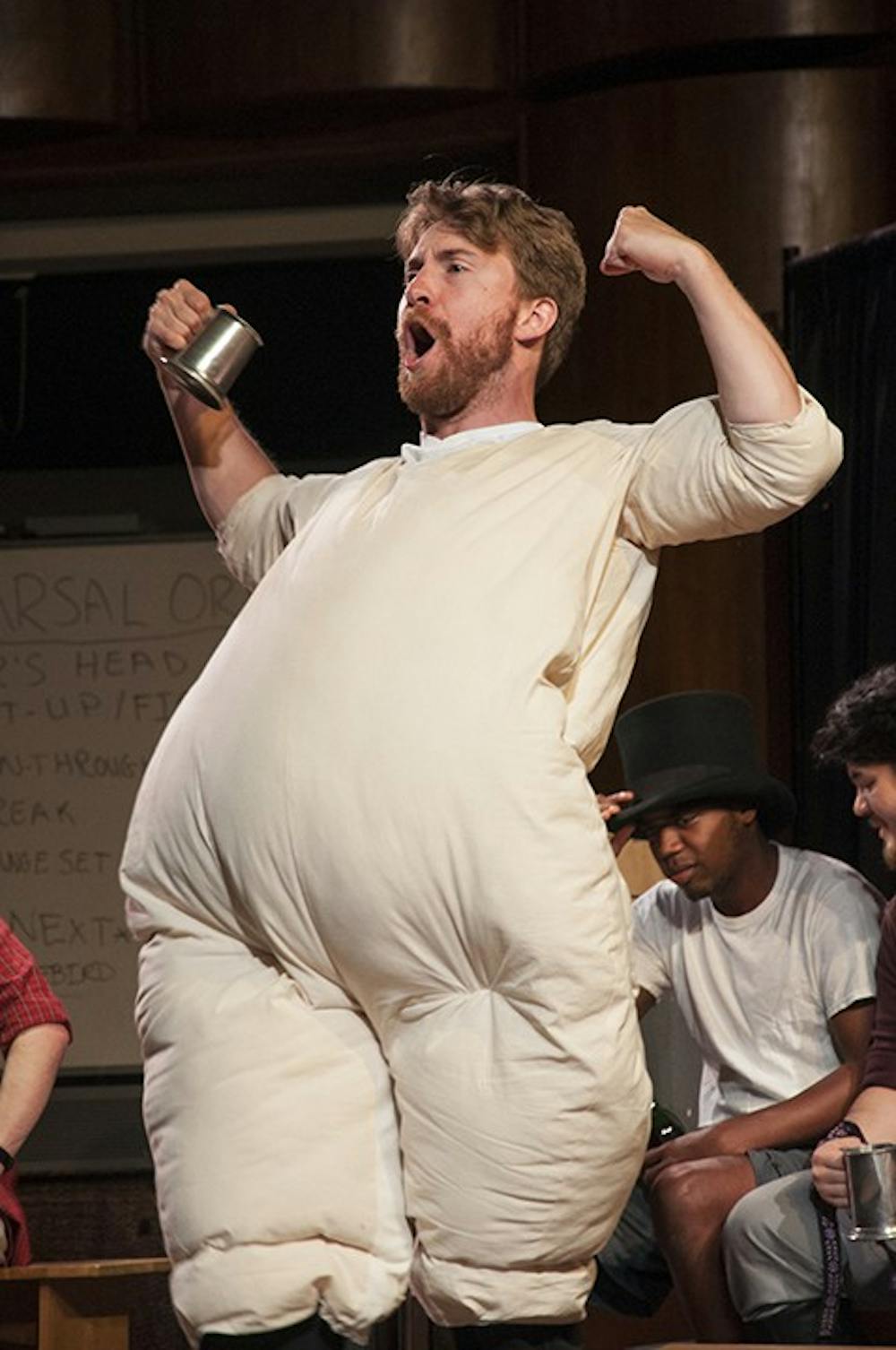When picturing an opera, one would expect soft piano, a sophisticated silence and a formally dressed audience.
However, when entering the School of Music recital hall to watch “An Evening of One Acts,” operagoers experience something completely different.
Before the performance even began, performers were talking, laughing and warming up right there on stage. They were unpacking boxes of props, trading accessories and moving benches and tables from one side of the stage to the other. Students were dressed in comfortable clothing, as was the audience.
Ellen Douglas Schlaefer, the director of opera studies, said the opera program began performing one-act operas, like "Firebird Motel" and "At the Boar's Head" when she first came to the program in 2004. She says they have done a one-act play almost every year since then.
“One of the things I wanted to do when I came here was put an emphasis on American music and American one-acts,” Schlaefer said. “But our director program has gained some momentum, and we have been able to stray away from that.”

"Firebird Motel" tells the story of a young woman who disappeared from a small hotel in the middle of the desert. The jazzy opera depicts the investigation of her death and mysterious discovery on the local villain who killed her.
“[Firebird Motel] is almost brand new and has been performed very few times,” Schlaefer said. “This one was picked because it has a good story, it’s jazzy and bluesy and has a good punch to it.”
The "Firebird Motel" embraced modern entertainment trends including ghost appearances and crime investigations.
The other performance, “At the Boar’s Head,” takes place in a drunken tavern as two men spend an entire day with prostitutes and local drunks before they leave to fight the Battle of Shrewsbury.
Though this opera was adapted from the historical opera Henry IV, many aspects intrigued a modern day audience. The drinking references seemed to delight the viewers, and two hippie-like characters brought amusement.
“We were doing this kind of improvisatory,” third-year opera student Michael Lu said. “It is rehearsed to an extent, but the entire thing was basically improv. We didn’t know what the set would look like.”
Lu said that this was the most challenging part of the plays, but also made it more fun. Schlaefer said that by leaving the stage direction up to the performers, it gives them the chance to be creative.
Throughout the show, the audience was very engaged, laughing and whispering about the performance. The onstage energy was so charming and realistic — it’s hard to believe the performers made all of the stage directions up on the spot.
“I wanted them to be responsible for what they were doing,” Schlaefer said. “We’ve been improvising from the beginning, so each performance is going to be different from day to day.”
The unrecorded stage directions included props being constantly moved, stacked and traded without stumbling or running in to each other. It looked as if everything were rehearsed move-by-move.
Second-year Lawrence Long said that was because most of the performers have worked together before and some of them even hang out outside of the operas.
“We’re a big family at Opera at USC," Long said. “We have a great director, and the school of music is a great community, and we all just love each other. We’re just a giant family here.”
Many of the performers credited their great performance to Schlaefer, but she believes the credit should go to them.
“We’re a team,” Schlaefer said. “The energy is terrific, and we understand that what we do is collaborative and that all the parts have to work together. They are energetic, wonderful, talented, young people that are invested far beyond the performance aspect.
"They are kind to credit me, but I am not the one up on that stage.”

